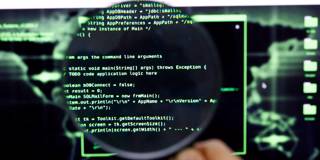To commemorate its founding 25 years ago, PS is republishing a selection of commentaries written since 1994. In the following commentary from 2012, Anne-Marie Slaughter issued an early warning about attempts by authoritarian regimes to crack down on independent journalism and disseminate disinformation online.
PRINCETON – An information war has erupted around the world. The battle lines are drawn between those governments that regard the free flow of information, and the ability to access it, as a matter of fundamental human rights, and those that regard official control of information as a fundamental sovereign prerogative. The contest is being waged institutionally in organizations like the International Telecommunications Union (ITU) and daily in countries like Syria.

PRINCETON – An information war has erupted around the world. The battle lines are drawn between those governments that regard the free flow of information, and the ability to access it, as a matter of fundamental human rights, and those that regard official control of information as a fundamental sovereign prerogative. The contest is being waged institutionally in organizations like the International Telecommunications Union (ITU) and daily in countries like Syria.